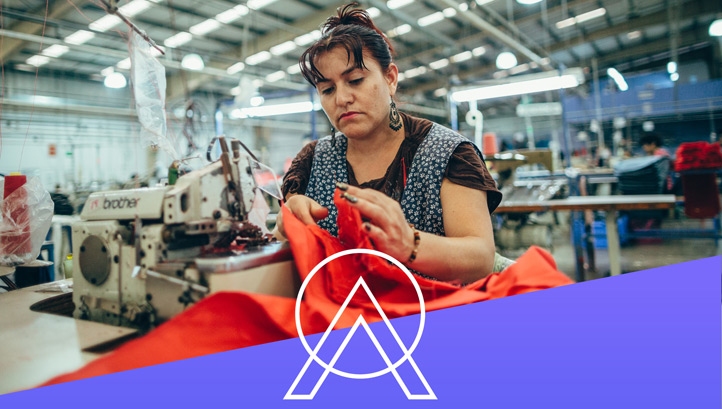Fashion giant C&A’s charitable arm, the C&A Foundation, has teamed up with geospatial technology firm Azavea to develop a new open-source digital map aimed at helping fashion retailers, suppliers and designers to boost their transparency efforts.

The tool aims to help the sector overcome the challenges of “bad data” and bolster its disclosure practices. Image: Claudia Orozco for C&A Foundation
Called the Open Apparel Registry (OAR), the tool maps garment facilities across the world by assigning a unique ID number to each location. The database of IDs will use an address-matching algorithm to tie each facility to its location, name and information about its suppliers and buyers.
Initial data used to create the map has been aggregated from existing multi-stakeholder supply chain initiatives, individual brand and retailer supply lists, factory group lists, government databases and service provider lists.
The tool has been made available for use by any organisation within the fashion sector, with C&A Foundation and Azavea aiming to make it the “go-to source” for identifying all global facilities and their affiliations.
The organisations claim the open-source model will help businesses to update and standardise facility information to boost transparency, better understand the other affiliations of their suppliers and find new suppliers which operate in more ethical and sustainable ways.
“This groundbreaking initiative is the first to share, free of charge, important industry data across brands, retailers, manufacturers, multi-stakeholder initiatives and civil society,” C&A Foundation’s executive director Leslie Johnston said.
“By doing so, the OAR accelerates collaboration within the apparel industry and contributes to a new paradigm of open data, which we believe is critical to making fashion a force for good.”
The OAR will operate as a non-profit organisation, led by a board of directors from open data firms, garment factory groups, designers, retailers and multi-stakeholder initiatives.
Putting sustainable fashion on the map
The unveiling of the OAR comes shortly after C&A Foundation revealed that it had been working with blockchain startup Bext360, the Organic Cotton Accelerator and Fashion For Good to use blockchain to help bolster the transparency of fashion brands’ cotton supply chains.
Under the project, a coalition of fashion brands including C&A, PVH Corp and Kering will undertake trials to determine whether the digital and ‘unbreakable’ audit chains offered by blockchain can track cotton across the globe, as it moves from farm to processor for gin.
If this process proves successful, they will then use the technology to track post-gin cotton as it progresses through factories, shipping routes, warehouses and stores.
The trial is one of several fashion supply chain mapping projects to have launched in recent times, in the wake of high-profile exposes laying bare the scale of the industry’s modern slavery, chemical pollution, deforestation and carbon emission problems.
One of the largest of these schemes is ForestMapper, which was launched late last year by environmental non-profit Canopy and has received support from the likes of H&M, Marks & Spencer (M&S), Inditex and Kering.
The initiative uses a digital tool to map all of the forests in the world, telling users which have been classified as “ancient” or “endangered”. The tool then informs users of the exact locations which fashion sector corporates are sourcing their raw materials from, enabling greater traceability and accountability by highlighting areas affected by deforestation.
Satellite mapping was listed by edie as one of the nine products, systems and concepts that could transform sustainability in 2019. You can read that round-up in full here.
Sarah George
